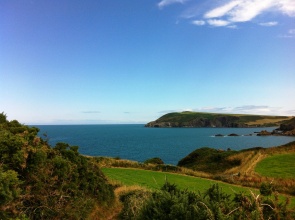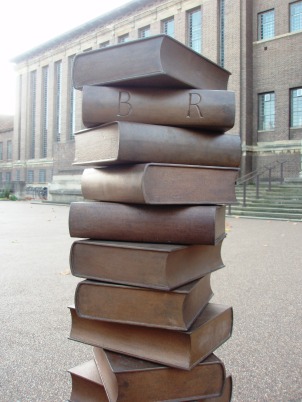

Going to your friends’ cabin in the mountains is a treat. But if even if you know them and the place well, you might be unsure about how it will work out. If they pop into town and leave you to it for the evening, that can be a relief.
Except when the next morning, they don’t come back. Or the next.
In fact, when you don’t see anyone at all for a few days, you might start to worry. It’s a remote location, but it’s a popular holiday spot, and summer will soon be in full bloom.
So you take the dog and go down the dirt track to check. And come up against a wall. You can’t see it, but you can feel it, and there’s no way out.
So begins Marlen Haushofer’s Die Wand, translated from German into English by Shaun Whiteside as The Wall. She published it in Austria in 1963, two years after another wall came up in Germany. But that one’s called a Mauer, which is more for outdoors, building structures. A Wand is usually indoors, to separate rooms, and so less substantial. Only when I lived in the city did I get a tangible sense of how the Berlin Wall never run from North to South, splitting the country into East to West. In fact it encircled West Berlin, to keep people from crossing it from East Berlin and East Germany. So that Mauer was more like the Wand in this book, in the sense that it encircled a larger area, creating an island. Further in, there are woods and rivers and houses and you might not even notice. Come up against it, and it is impassable. Life on the other side has stopped completely and you have no access to it.
There the parallel ends. Because in Die Wand, the protagonist is utterly alone. There are no other people, the radio does not work, so the dog, cats and cow become her most important companions. Like so much of the book, this feels startlingly modern. If it came to it, could you survive alone off the land? Would you have the skills for it, after years of urban life? Would the land even yield enough for you to live on? How long before ecological and personal disaster struck?
So is Die Wand a thriller? No. I’ve read so much speculative fiction that I was on tenterhooks for the aliens to land or the fairies flutter out from between the trees. But the pace of this book is very different. Haushofer, born in 1920, can imagine life with the rhythm of the seasons and at the mercy of the weather. She describes the backbreaking work involved in agriculture and husbandry. She knows how few human-made things and how little human contact you need to survive. Once I settled into the narrated rhythm, even the smallest changes like finding a wild raspberry bush took on vast significance. Anything new came as a shock. It took me a long time to work out how the story might end.
While reading, I was impatient at first and had to slow down. Having read Die Wand several weeks before writing this, I’m struck by how much Haushofer’s story has stayed with me. Read it, and it will stay with you.





















Leave a comment